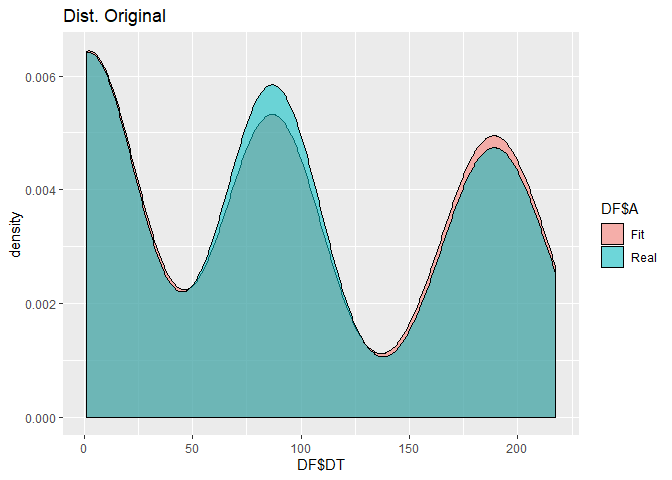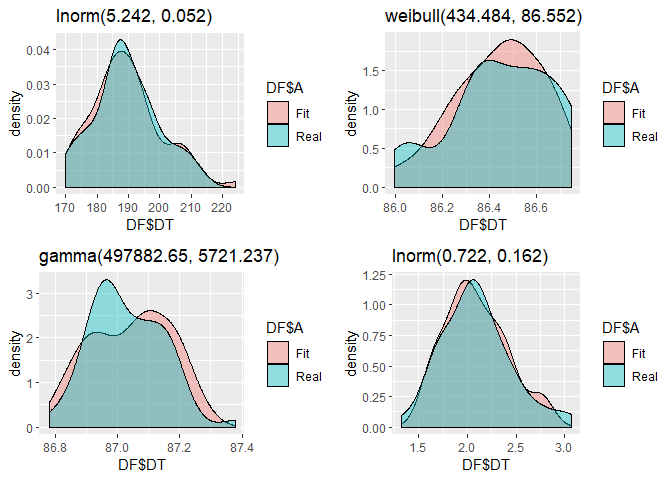
The hardware and bandwidth for this mirror is donated by dogado GmbH, the Webhosting and Full Service-Cloud Provider. Check out our Wordpress Tutorial.
If you wish to report a bug, or if you are interested in having us mirror your free-software or open-source project, please feel free to contact us at mirror[@]dogado.de.
The goal of FitUltD is to fit data that can’t be fitted with ordinary density functions
You can install the released version of FitUltD from CRAN with:
install.packages(“FitUltD”)
This is a basic example which shows you how to fit a multimodal random variable:
library(FitUltD)
#> Loading required package: mclust
#> Package 'mclust' version 5.4.5
#> Type 'citation("mclust")' for citing this R package in publications.
#random Variable
RV<-c(rnorm(73,189,12),rweibull(82,401,87),rgamma(90,40,19))
FIT1<-FDistUlt(RV, plot=TRUE, subplot = TRUE)
#> <simpleError in optim(par = vstart, fn = fnobj, fix.arg = fix.arg, obs = data, gr = gradient, ddistnam = ddistname, hessian = TRUE, method = meth, lower = lower, upper = upper, ...): non-finite finite-difference value [2]>
#> <simpleError in optim(par = vstart, fn = fnobj, fix.arg = fix.arg, obs = data, gr = gradient, pdistnam = pdistname, hessian = TRUE, method = meth, lower = lower, upper = upper, ...): non-finite finite-difference value [2]>What is special about using README.Rmd instead of just
README.md? You can include R chunks like so:
FIT1[[3]]
#> Distribucion Prop_dist AD_p.v KS_p.v Chs_p.v
#> AD6 lnorm(5.242, 0.052) 0.29795918 0.8372311 0.8985857 0
#> AD8 weibull(434.484, 86.552) 0.09387755 0.8861584 0.7938189 0
#> AD2 gamma(497882.65, 5721.237) 0.24081633 0.7523182 0.7705192 0
#> AD61 lnorm(0.722, 0.162) 0.36734694 0.9807500 0.9616154 0You’ll still need to render README.Rmd regularly, to
keep README.md up-to-date.
You can also embed plots, for example:


These binaries (installable software) and packages are in development.
They may not be fully stable and should be used with caution. We make no claims about them.
Health stats visible at Monitor.